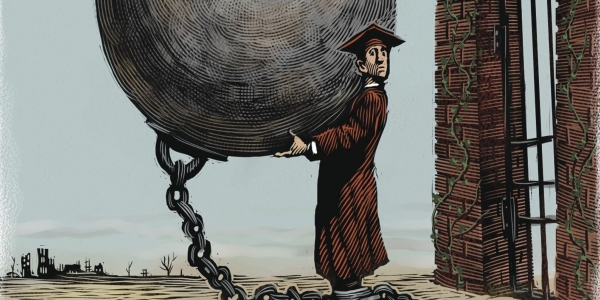Inside the GOP: Report on focus groups with Evangelical, Tea Party, and moderate Republicans
By Stan Greenberg, James Carville, and Erica Seifert
Democracy Corps / Greenberg Quinlan Rosner Research
If you want to understand the government shutdown and crisis in Washington, you need to get inside the base of the Republican Party. That is what we are doing in the Republican Party Project and these focus groups with Evangelicals, Tea Party, and moderate Republicans. All the passion, nuances and divisions found expression when we conducted this work in the summer.
Over the last two months, we have been releasing initial findings from the first phase of research for Democracy Corps' new Republican Party Project. This report details findings from six focus groups among Republican partisans-divided into Evangelicals, Tea Party adherents, and moderates. All participants indicated that they voted only or mostly for Republican candidates and were screened on a battery of ideological and political indicators. The groups were conducted in Raleigh, North Carolina (moderate and Tea Party), Roanoke, Virginia (Tea Party and Evangelical), and Colorado Springs, Colorado (moderate and Evangelical.)
Understand that the base thinks they are losing politically and losing control of the country - and their starting reaction is "worried," "discouraged," "scared," and "concerned" about the direction of the country - and a little powerless to change course. They think Obama has imposed his agenda, while Republicans in DC let him get away with it.
We know that Evangelicals are the largest bloc in the base, with the Tea Party very strong as well. For them, President Obama is a "liar" and "manipulator" who has fooled the country. It is hard to miss the deep disdain-they say the president is a socialist, the "worst president in history," and "anti-American."
For all that, this is a deeply divided base. Moderates are a quarter of those who identify Re-publican, and they are very conscious of their discomfort with other parts of the party base. Their distance begins with social issues, like gay marriage and homosexuality, but it is also evident on immigration and climate change. Fiscal conservatives feel isolated in the party.
Evangelicals who feel most threatened by trends embrace the Tea Party because they are the ones who are fighting back. They are very in tune politically, but the Tea Party base is very libertarian and not very interested in fighting gay marriage.
Republicans shutdown the government to defund or delay Obamacare. This goes to the heart of Republican base thinking about the essential political battle. They think they face a victorious Democratic Party that is intent on expanding government to increase dependency and therefore electoral support. It starts with food stamps and unemployment benefits; expands further if you legalize the illegals; but insuring the uninsured dramatically grows those de-pendent on government. They believe this is an electoral strategy-not just a political ideology or economic philosophy. If Obamacare happens, the Republican Party may be lost, in their view.
And while few explicitly talk about Obama in racial terms, the base supporters are very conscious of being white in a country with growing minorities. Their party is losing to a Democratic Party of big government whose goal is to expand programs that mainly benefit minorities. Race remains very much alive in the politics of the Republican Party.
These are strong common currents in the Republican base, but the thinking and passions are very distinct and telling among the key blocs - and those have consequences for those who seek to lead. We selected these three groups (Evangelicals, non-Evangelical Tea Party adherents, and moderates) because combined they represent almost all of today's Republican partisans. The focus group locations, demographic characteristics, and participants' ideological characteristics were all selected based on statistical analysis of our first survey for this project. While these are focus groups, and not statistically representative, this analysis gives a real, robust, and serious snapshot of who these Republicans are, how they think, and what matters to them.
--Evangelicals. Social issues are central for Evangelicals and they feel a deep sense of cultural and political loss. They believe their towns, communities, and schools are suffering from a deep "culture rot" that has invaded from the outside. The central focus here is homosexuality, but also the decline of homogenous small towns. They like the Tea Party because they stand up to the Democrats.
--Tea Party. Big government, Obama, the loss of liberty, and decline of responsibility are central to the Tea Party worldview. Obama's America is an unmitigated evil based on big government, regulations, and dependency. They are not focused on social issues at all. They like the Tea Party because it is getting "back to basics" and believe it has the potential to reshape the GOP.
--Moderates. Moderates are deeply concerned with the direction of the country and believe Obama has taken it down the wrong path economically. They are centrally focused on market-based economics, small government, and eliminating waste and inefficiency. They are largely open to progressive social policies, including on gay marriage and immigration. They disdain the Tea Party and have a hard time taking Fox News seriously.
1. Focus groups as real life
When a Macomb County focus group participant shot back, "No wonder they killed him" after I read a statement by Robert Kennedy, that stopped me and led to a whole new analysis of Reagan Democrats - and what were the core blockages to working whites voting Democratic again. These groups with core Republican voters had similar moments - but more important, these emerged as affinity groups where the participants worked through their alienation and isolation, not just from politically correct-liberal dominated media, but other Republicans, family members, and neighbors. If you want to know why Republicans are at war internally, start with their voters who are in turmoil.
Read more...
Read More...
Summary only...




 Today’s speculators have created grotesque financial mechanisms, from usurious interest rates on loans to legalized accounting fraud, to plunge the masses into crippling forms of debt peonage. They steal staggering sums of public funds, such as the $85 billion of mortgage-backed securities and bonds, many of them toxic, that they unload each month on the Federal Reserve in return for cash. And when the public attempts to finance public-works projects they extract billions of dollars through wildly inflated interest rates.
Today’s speculators have created grotesque financial mechanisms, from usurious interest rates on loans to legalized accounting fraud, to plunge the masses into crippling forms of debt peonage. They steal staggering sums of public funds, such as the $85 billion of mortgage-backed securities and bonds, many of them toxic, that they unload each month on the Federal Reserve in return for cash. And when the public attempts to finance public-works projects they extract billions of dollars through wildly inflated interest rates.  By Robert Creamer
By Robert Creamer




 Sept 27, 2013- The United States is exceptional, President Barack Obama insisted on Tuesday addressing the United Nations General Assembly, clearly in a bid to refute Russian President Vladmir Putin's criticism of American exceptionalism in a recent article published in The New York Times.
Sept 27, 2013- The United States is exceptional, President Barack Obama insisted on Tuesday addressing the United Nations General Assembly, clearly in a bid to refute Russian President Vladmir Putin's criticism of American exceptionalism in a recent article published in The New York Times. 













![[PDA - Heathcare NOT Warfare - Sign the Petition.]](http://pdamerica.org/images/ads/HealthNotWar_final.jpg)


